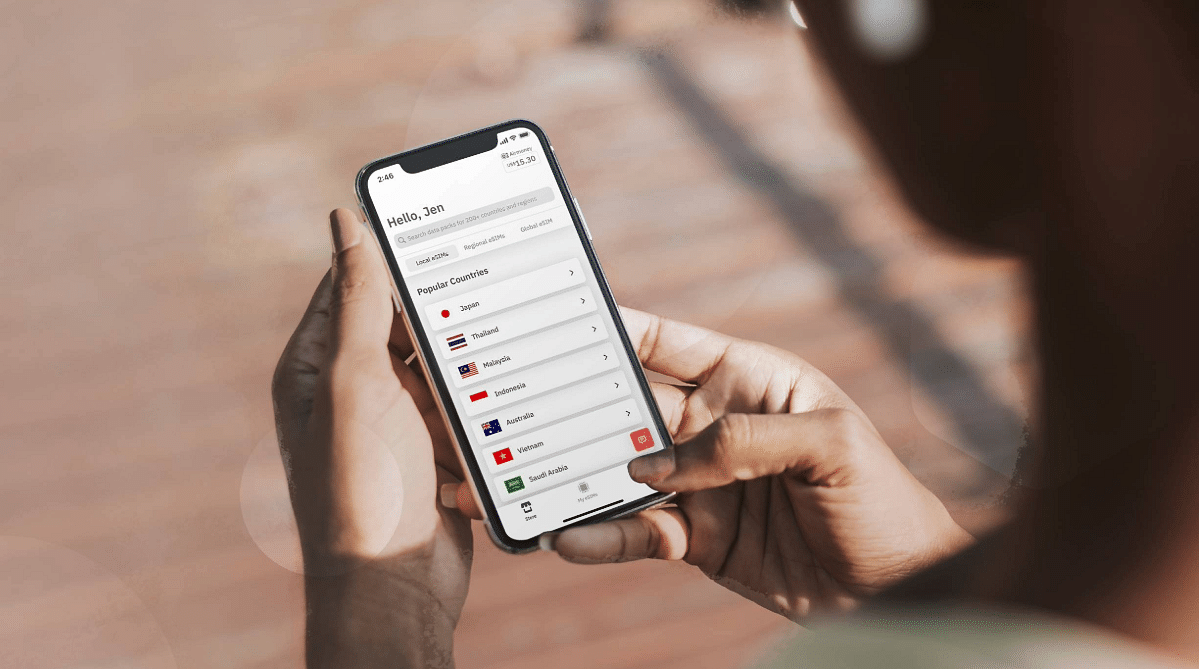
In recent years, Bali has become one of the most sought-after global destinations for travelers. This makes perfect sense when you consider what's waiting here: pristine tropical beaches, sublime cuisine, jungle trekking, diverse culture, and so much more. It, therefore, makes perfect sense that it has also become an attractive home base for the digital nomad. As work continues to trend toward remote opportunities, quality of life for those tied to a computer can translate into making anywhere in the world one's office.
And Bali has stepped up to make it easier than ever for folks like this to spend quality time on the island. Communal workspaces, from digital cafés and co-working spaces to social restaurants full of expats with excellent Wi-Fi connectivity, converge to make sliding into the situation easy and pleasant. However, the Balinese government has made recent moves as well, fomenting a visa regime that can offer great flexibility for those seeking to live the good life here while keeping their remote career going. Digital nomad visas in Bali are more within reach than ever. Here's all you need to know to get your journey started.
In this article:
- Types of Bali Digital Nomad Visas
- How to obtain eligibility for the Bali Digital Nomad Visa
- How to apply for the Bali Digital Nomad Visa
- How much does it cost to apply for the Bali Digital Nomad Visa?
- Taxes for digital nomads in Bali
- How digital nomads can stay connected using an eSIM
Related: The 6 Best Digital Nomad Destinations of 2024 (And Everything You Need to Know to Move There)
 Unsplash
Unsplash
Types of Bali Digital Nomad Visas
Until recently, Bali had only one kind of digital nomad visa. But thanks to new legislation taking effect in 2024, there are now two ways to go: a 30–60-day regime and a five-year+ option. Those seeking a longer stay can learn the basics below but also need to keep an eye on developments as the policy change evolves.
B211a Visa: The 30-60 Day Option
Working remotely ideally allows for an extended stay. Anyone wishing to stay less than 180 days, including digital nomads, can use the B211a Visit Visa. While it works for tourists, anyone earning a living abroad can employ this one (NOTE: it is not allowed for those seeking local freelance employment). It will initially allow you to stay from 30-60 days. However, under the right circumstances, the visa can be extended twice for a maximum stay of 180 days. Keep in mind that for the duration of the visa, you cannot leave Bali. If you do, the rest of the duration of the visa will immediately be forfeited.
Indonesian Remote Worker Visa/KITAS: The "Second Home" Bali Digital Nomad Visa
For many years, Bali officials have been advocating for longer visa stays for digital nomads. The result is the so-called "second home" visa. Officially known as the Indonesian Remote Worker Visa/KITAS. While it comes with a different set of requirements, those who fit the criteria (explained below) can have the right to live and remotely work in Bali, as well as have reentry rights, for as many as five to ten years. That said, responsibilities and expectations will obviously be more rigorous as the government wants certain assurances for those seeking that length of stay.
 Freepik
Freepik
How to Obtain Eligibility for the Bali Digital Nomad Visa
Whichever type of visa you seek for your Bali digital nomad stay, you will need to go through certain procedures as well as meet a set of qualifications to obtain eligibility. Many of these will seem straightforward and obvious, while others will be seen as commitment-securing incentives, especially for those seeking extended stays.
30-60 Day Requirements
All 30– to 60-day visas should be secured before arrival. To obtain the B211a Visa for your Bali digital nomad stay, you will need the following:
- A valid passport from a qualified country that will not expire for at least 12 months (if you decide to extend your stay beyond the 30-60 days).
- A ticket for an outgoing flight abroad, proving you have the means to exit Indonesia at the end of your stay (changeable and/or refundable flights make the most sense unless you have a hard exit date).
- Holding at least US $2,000 in funds deposited in your bank account.
- Proof of income showing at least US $60,000/year.
- An employment contract with a company abroad.
5+ Year Requirements
While the Indonesian Remote Worker Visa/KITAS is recent and may undergo some changes, there are certain guidelines already well understood for those seeking to make Bali their "second home" for a more extensive digital nomad stay. The privilege is available to more than 160 countries, allowing tax-free living for up to five years, with the following requirements:
- A valid passport that does not expire for at least three years.
- A deposit of at least Rp2,000,000,000 (or around US$130,000) into an Indonesian state-owned bank.
- A recent color photograph (4 cm x 6 cm) with a white background.
- An updated curriculum vitae (aka professional resume).
 Freepik
Freepik
How to Apply for the Bali Digital Nomad Visa
Indonesia has an online visa registration portal that you can use to apply. Here is what will be required for you to upload for the process:
- A copy of a valid Passport
- Your passport-approved photo (color 4 cm x 6 cm, white background).
- Your most current bank statement.
- A ticket for onward travel (for the B211a Visa).
- Certificate of COVID-19 vaccination in English.
How Much Does It Cost to Apply for the Bali Digital Nomad Visa?
Depending on the extent of your stay, it will cost you US$105 – US$205.
Taxes for Digital Nomads in Bali
Up until now, the expectation has been that if a digital nomad stayed in Bali for longer than 183 days, they were subject to taxation. However, this may be changing as the Indonesian Remote Worker Visa/KITAS regime allows for tax-free living. At the moment, the situation is fluid, so the best thing to do is to consult visa consultants who are staying on top of the situation.

How Digital Nomads Can Stay Connected Using an eSIM
Communication is vital for any digital nomad. It's necessary to stay in touch with family and friends at home, and essential to connect with people and organizations in home countries.
An eSIM simplifies communication. It's the easiest and most affordable way to stay connected while you travel the world as a digital nomad. Here are a few ways using an eSIM can benefit you:
- No roaming fees. eSIM plans are prepaid, so you don't need to worry about accidental roaming charges while you travel.
- Tether your eSIM data. No Wi-Fi connection? No problem. You can tether your eSIM data to another device, like a tablet or laptop.
- 100% digital. There's no need to keep track of a physical SIM card for every destination — you can save up to eight digital eSIM profiles on most smartphones.
- Top up your data. Many Airalo eSIM packages have a top-up function, which allows you to top up your data, calls, or messages on the go.
- Share your adventures. Use your eSIM data to send emails, connect with your loved ones, and post on social media in real-time.
- Stay connected. You don't need to rely on a Wi-Fi connection to get online — instead, you can use an eSIM to access data wherever you travel.
Airalo's eSIMs make life easier for digital nomads. Visit the Airalo store to find eSIMs for 200+ countries and regions worldwide.



